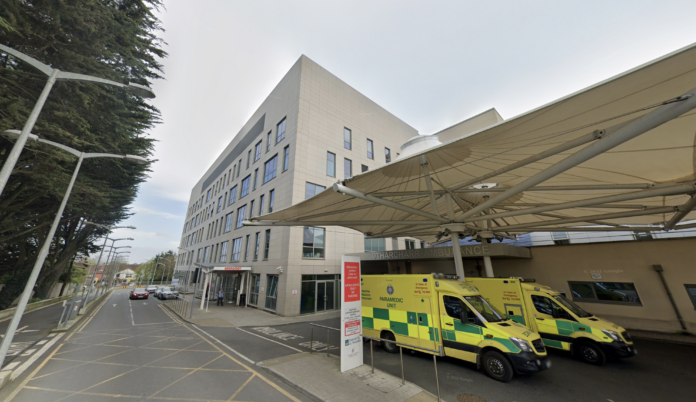
THERE were 108 admitted patients waiting on trolleys and overflow wards for an in-hospital bed in University Hospital Limerick (UHL) this Monday morning.
And with more than 800 people admitted to hospitals across the country over the weekend, health bosses are saying infections have not yet peaked.
Health Service Executive CEO Bernard Gloster said the numbers waiting on trolleys across the country are expected to increase, but cases have still to peak at an estimated 900 in the coming week.
People who need treatment are being asked to look at the best care options available to them.
Anyone with symptoms which don’t improve over time, or if they worsen, should call a GP.
Shannondoc will provide urgent out-of-hours GP care over the holiday season and can be contacted on 0818 123 500 and on 061 459 500.
Limerick Doc (Limerick City only) can be contacted on 087 755 1570. The service is by appointment only.
Injury units can treat many of the injuries people usually go to the emergency department for. For example, broken bones, dislocations, and minor burns.
Treatment such as x-rays, plaster casts, and wound care are also provided injury units, which are are open at St John’s Hospital, Ennis Hospital, and Nenagh Hospital from 8am to 8pm 365 days a year.
Appointments are not needed for injury units and there is no charge for full medical card holders or those with a GP referral letter. Otherwise it costs €75 to attend an injury unit.
EDs deal with life-threatening emergencies, including patients experiencing breathlessness, feeling unwell, and getting sicker very quickly.
Other examples include when someone is not feeling well and has become confused and agitated; is very pale with cold hands and feet; is dizzy when they sit up or unable to stand; or has developed a rash that does not disappear when pressed down.
The emergency department at University Hospital Limerick operates 24/7.
Speaking on RTÉ’s This Week, Mr Gloster said that between December 20 and 27, 34,400 people attended emergency departments nationwide and that 8,500 were admitted compared to 7,800 for the same period last year.
Mr Gloster said the issue now was not the peak of the flu, but rather how long the tail of the flu will last, which can impact right through January.
“We are very much in charge of it … but we need the public’s assistance both in controlling the circulation of flu and also what they do when they experience flu like symptoms,” he said.
Mr Gloster said if people experience chest pain or breathing difficulties, they should go to an emergency department if “no other clinician is available to you”, but otherwise to seek advice from their GP or local pharmacist.










